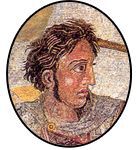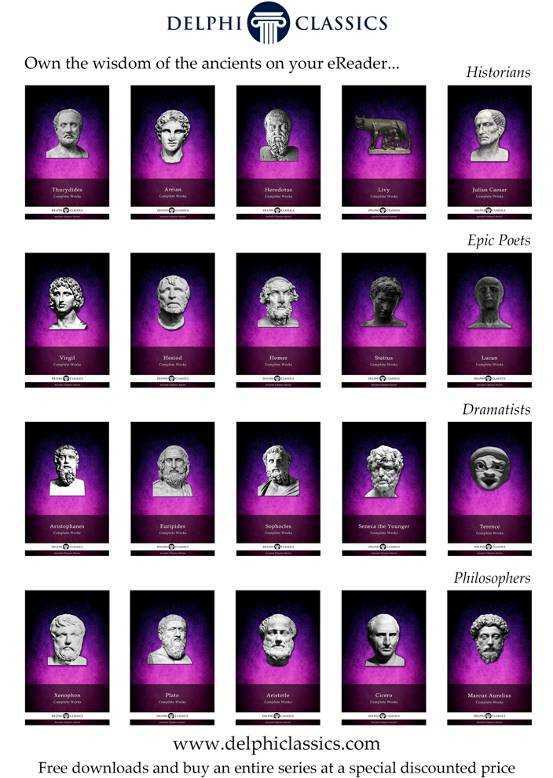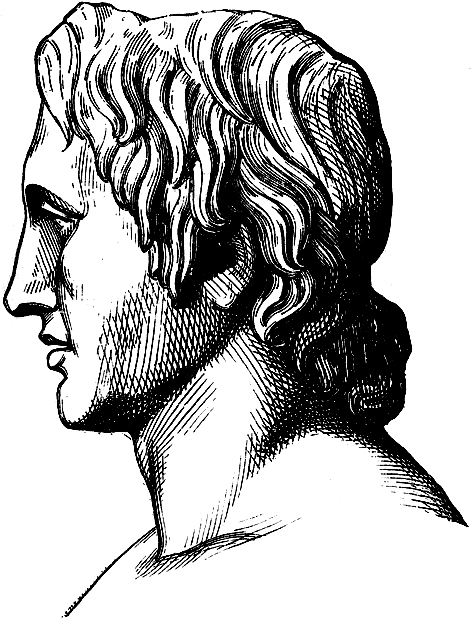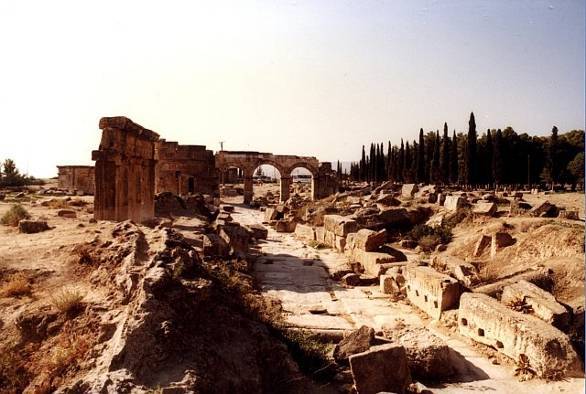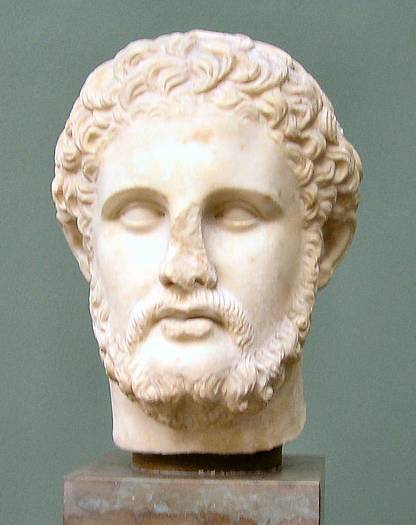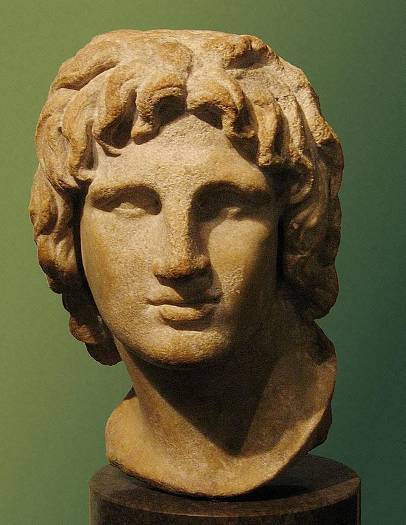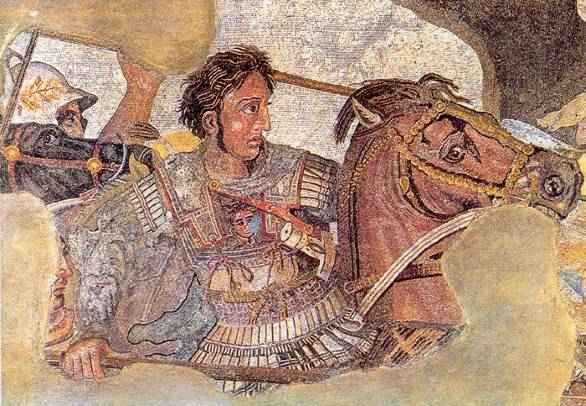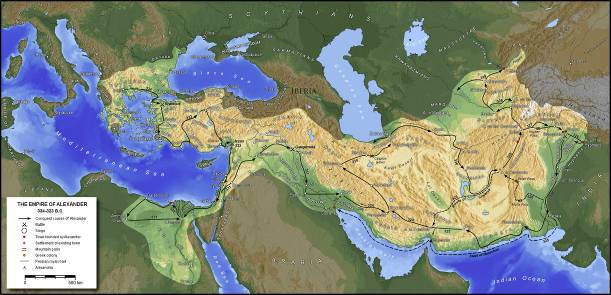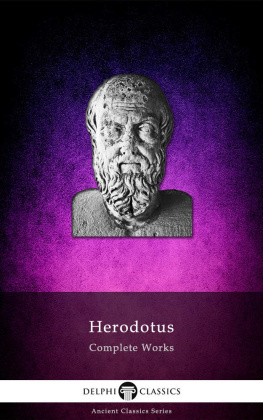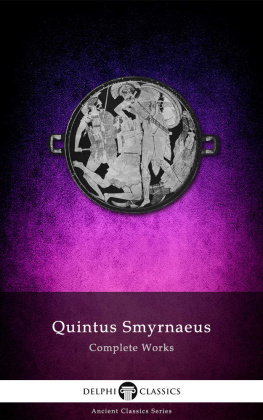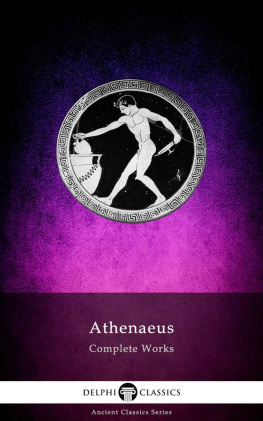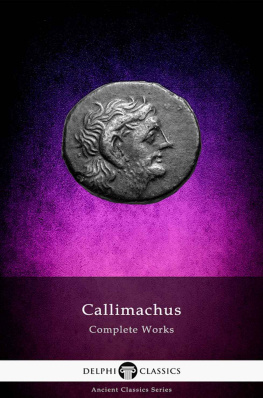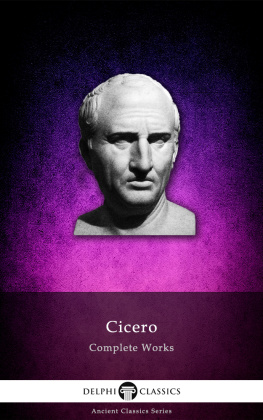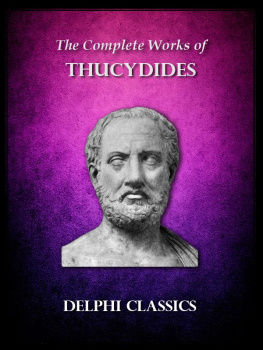The Complete Works of
ARRIAN
(c. 86 AD c. 160 AD)
Contents
Delphi Classics 2014
Version 1
The Complete Works of
ARRIAN
By Delphi Classics, 2014
COPYRIGHT
Complete Works of Arrian
First published in the United Kingdom in 2014 by Delphi Classics.
Delphi Classics, 2014.
All rights reserved. No part of this publication may be reproduced, stored in a retrieval system, or transmitted, in any form or by any means, without the prior permission in writing of the publisher, nor be otherwise circulated in any form other than that in which it is published.
Delphi Classics
is an imprint of
Delphi Publishing Ltd
Hastings, East Sussex
United Kingdom
Contact: sales@delphiclassics.com
www.delphiclassics.com
The Translations
Ruins at ancient Nicomedia Arrians birthplace. Nicomedia was the capital of the Roman province of Bithynia, in what is now north-western Turkey, 50 miles east of Byzantium (Istanbul).
ANABASIS OF ALEXANDER
Translated by E. Iliff Robson
The , which concerns the military campaigns of Alexander the Great, is widely regarded as the most important historical source on the famous commander. The Greek term anabasis refers to an expedition from a coastline into the interior of a country, making a more literal translation of the title: The Expedition of Alexander. Arrians work on Alexander is one of the few surviving complete accounts of the Macedonian conquerors expedition. The historian was able to use sources which are now lost, such as contemporary works by Callisthenes, the nephew of Alexanders tutor Aristotle, as well as Onesicritus, Nearchus, Aristobulus and the slightly later work of Cleitarchus. Most important of all, Arrian possessed a copy of the biography on Alexander by Ptolemy, one of Alexanders leading generals and possibly his half-brother.
Arrians Anabasis of Alexander is primarily a military history, recording little of Alexanders personal life, his role in Greek politics or the reasons why the campaign against Persia was launched in the first place. In the work, Arrian claims that Alexanders greatness is worthy of praise and glory, and should be known by future generations. It is apparent from the first that the historian intended to make his subjects life a legend through his writing.
At the time of Arrians life, the common Greek language of the Hellenistic and Roman periods was in universal spoken use. As a writer, Arrian was obliged by the prevailing literary custom of his time to compose his works in good Greek, which meant imitating as closely as possible the grammar and literary style of the Athenian writers of the 5th century BC; for example, the Attic style of Xenophon and Thucydides. Therefore, the style of the Anabasis of Alexander is inevitably stilted and artificial, although Arrian handled the strain of writing 500-year-old Greek better than some of his contemporaries. Xenophon was a good model of clear and unpretentious prose, which Arrian faithfully followed.
Arrians history of Alexander is generally considered by many to be a reworking of Ptolemys biography, though enhanced with material from other writers, particularly Aristobulus. As Ptolemy was a general, Arrian relied on him as a professional of military science for details of Alexanders battles, on which Ptolemy was certainly well informed. Details of geography and natural history were taken from Aristobulus, although Arrian himself had a wide knowledge of Anatolia and other eastern regions.
The Anabasis of Alexander gives a reasonably full account of Alexanders life during the campaign and in his personal assessment of the conqueror, Arrian adopts a neutral tone, avoiding flattery and censure. Instead, we are given a more realistic portrayal of the famous general. The historian concedes Alexanders sensibility, vanity and weakness for drink and yet acquits him of the grosser crimes some historians have accused him of.
Philip II of Macedon, Alexanders father
Bust of a young Alexander the Great from the Hellenistic era, British Museum
Alexander fighting king Darius III of Persia, a mosaic dating from c. 100 BC, originally from the House of the Faun in Pompeii, now housed in the Naples National Archaeological Museum.
CONTENTS
Map of Alexanders Empire and his route
BOOK I
PREFACE TO VOLUME I
Wherever Ptolemy son of Lagus and Aristobulus son of Aristobulus have agreed in their histories of Alexander son of Philip, I record their story as quite accurate; where they disagree I have chosen what I feel to be more likely and also better worth the narrating. Others have given various accounts of Alexander, in fact there is no one over whom historians have been more numerous and less harmonious. My own view is that Ptolemy and Aristobulus are more trustworthy narrators, for Aristobulus took the field with King Alexander; Ptolemy not only did the same, but, as he was a king himself, falsehood would have been more shameful to him than to anyone else. Besides, since Alexander was dead when they both wrote their histories, there lay on them neither any constraint nor any hope of gain in writing other than plain fact. Parts, however, of the records of others, such as appeared to me worthy of narration and not wholly untrustworthy, I have included as so much tradition about Alexander. Should anyone be surprised, when there is such abundance of writers, that it should have occurred to me also to compose this history, I beg him to reserve his surprise till he has first surveyed their work and made the acquaintance of mine.
I. The death of Philip is placed in the archonship of Pythodemus at Athens; Alexander, then about twenty, succeeded, being Philips son, and came into the Peloponnesus; so runs the story. There he gathered together the Peloponnesian Greeks and requested from them the leadership of the Persian expedition, which they had already granted to Philip. All agreed except the Lacedaemonians, who replied that their countrys custom did not permit them to follow others; it was theirs to take the lead of others. The Athenians also made some show of violence; but they collapsed at Alexanders first approach and conceded to him a position even more honourable than had been given to Philip. Alexander then returned to Macedonia and began to get ready for the Asian expedition.

